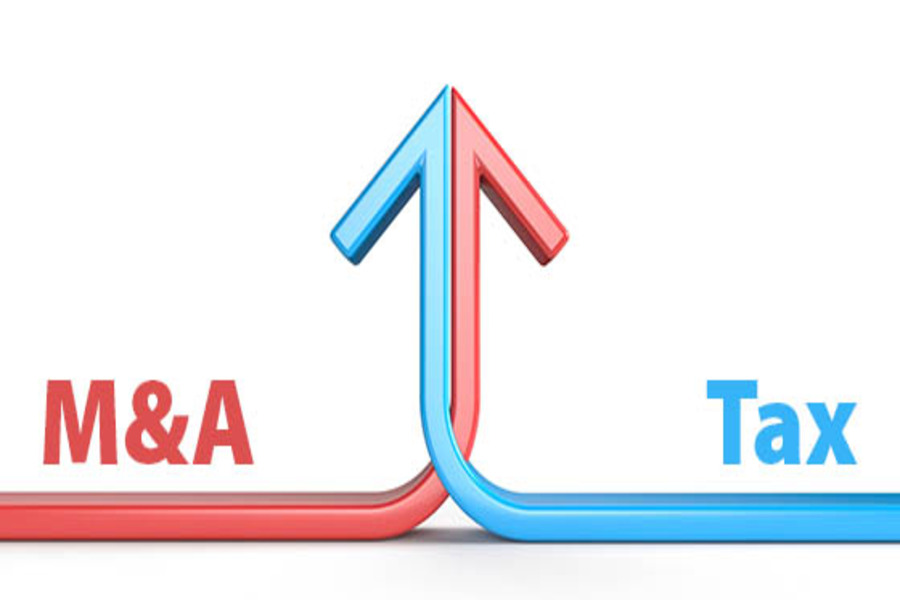Merger and acquisition (M&A) activity increased significantly in the fourth quarter of 2023, signaling a hot M&A market for 2024. But there are some potential pitfalls for unwary buyers and sellers. Here are some common mistakes and how a business valuator can help ensure your deal goes as planned. Reliance on valuation rules-of-thumb Some M&A participants rely on industry “rules of thumb” and gut instinct, especially in mature industries. Although rules of thumb can provide a reasonable basis for initial M&A discussions, they fail to address important valuation considerations, such as nonoperating assets and changes in market conditions. Therefore, they’re rarely sufficient as the sole basis for a deal. Before making a formal offer to merge with or acquire another business, it’s important to obtain a comprehensive valuation...

In recent years, merger and acquisition activity has been strong in many industries. If your business is considering merging with or acquiring another business, it’s important to understand how the transaction will be taxed under current law. Stocks vs. assets From a tax standpoint, a transaction can basically be structured in two ways: 1. Stock (or ownership interest) sale. A buyer can directly purchase a seller’s ownership interest if the target business is operated as a C or S corporation, a partnership, or a limited liability company (LLC) that’s treated as a partnership for tax purposes. The now-permanent 21% corporate federal income tax rate under the Tax Cuts and Jobs Act (TCJA) makes buying the stock of a C corporation somewhat more attractive. Reasons: The corporation will pay less tax and...
Merger and acquisition activity dropped dramatically last year due to rising interest rates and a slowing economy. The total value of M&A transactions in North America in 2022 was down 41.4% from 2021, according to S&P Global Market Intelligence. But some analysts expect 2023 to see increased M&A activity in certain industries. If you’re considering buying or selling a business, it’s important to understand the tax implications. Two approaches Under current tax law, a transaction can basically be structured in two ways: 1. Stock (or ownership interest). A buyer can directly purchase a seller’s ownership interest if the target business is operated as a C or S corporation, a partnership, or a limited liability company (LLC) that’s treated as a partnership for tax purposes. The current 21% corporate federal income...
Although merger and acquisition activity has been down in 2022, there are still companies being bought and sold. If your business is considering merging with or acquiring another business, it’s important to understand how the transaction will be taxed under current law. Stocks vs. assets From a tax standpoint, a transaction can basically be structured in two ways: 1. Stock (or ownership interest). A buyer can directly purchase a seller’s ownership interest if the target business is operated as a C or S corporation, a partnership, or a limited liability company (LLC) that’s treated as a partnership for tax purposes. The current 21% corporate federal income tax rate makes buying the stock of a C corporation somewhat more attractive. Reasons: The corporation will pay less tax and generate more...
The COVID-19 pandemic has often made the due diligence process for business acquisitions more complex and time-consuming. But if you’re buying a company, it’s critical to dedicate your full attention to this part of the M&A process — not only to confirm that the selling business is as valuable as you believe it to be, but to protect against fraud. Plan early to engage a fraud expert to review financial statements and other documents for signs that you could be dealing with a dishonest seller. Subtle warning signs When reviewing a seller’s financial statements, forensic experts look for subtle warning signs of fraud. These include excess inventory, a large number of write-offs, an unusually high number of voided discounts for returns, insufficient documentation of sales and increased...
Merger and acquisition activity in many industries slowed during 2020 due to COVID-19. But analysts expect it to improve in 2021 as the country comes out of the pandemic. If you are considering such a transaction, it's important to understand the tax implications of buying or selling a business. Two ways to arrange a deal Under current tax law, a transaction can basically be structured in two ways: (1) Stock (or ownership interest) A buyer can directly purchase a seller’s ownership interest if the target business is operated as a C or S corporation, a partnership, or a limited liability company (LLC) that’s treated as a partnership for tax purposes. The current 21% corporate federal income tax rate makes buying the stock of a C corporation somewhat more attractive. Reasons:...
Merger and acquisition (M&A) activity has been brisk in recent years. Is your business is considering merging with or acquiring another business? If so, it’s important to understand how the transaction will be taxed under current law. Stocks vs. assets From a tax standpoint, there are basically two ways to structure a transaction: 1. Stock (or ownership interest). A buyer can directly purchase a seller’s ownership interest if the target business is operated as a C or S corporation, a partnership, or a limited liability company (LLC) that’s treated as a partnership for tax purposes. The now-permanent 21% corporate federal income tax rate under the Tax Cuts and Jobs Act (TCJA) makes buying the stock of a C corporation somewhat more attractive. Why? The corporation will pay less tax...









